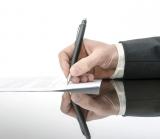Taxes You pay
Service Tax in a Restaurant Bill:
Service tax is a levy collected by the Central Government for the provision of certain services. The service tax has to be paid by the service provider to the government, and in turn the service providers pass on the amount to the customers. Service tax is a uniform tax across the country (though it is not applicable in Jammu and Kashmir), and is payable only if the services provided in a fiscal year is equal to or more than Rs. 10 lakh.
Taxable services include travel agency, courier services, chartered accountancy, banks, fashion designing, internet cafes, cab rentals, architectural services, telecommunications, and health clubs. Many people think that Service Tax cannot apply to restaurants. But the fact is that any restaurant that provides additional service to its patrons – that is to say, something more than just food and beverage, such as air-conditioned seating, waiters and attendants, sommelier, etc. – then they fall under the ambit of service tax. This change was brought about in the 2012 Budget.
Rate of Service Tax:
The rate of service tax is 14%, and along with Swachh Bharat Cess of 0.5%, the amount charged to us is 14.5%. From June 1, 2016, Krishi Kalyan Cess of 0.5% will also be added to this, making the total service tax from June 1 onwards, 15%. Ideally, service tax should be imposed only on 40% of the value of the bill, which is assumed to be the standard service expense, as opposed to the remaining 60% that is the raw material of the food and beverages ordered by the customer. This means that the service tax is chargeable only on 40% of the bill and not on the entire amount. So on the entire bill, the service tax chargeable will be 5.8% (6% from June 1).
For example, if your food and drinks bill is Rs. 2,450, then you should be paying Rs. 142 as service tax at the rate of 5.8% and not Rs. 355 at the rate of 14.5%. If any restaurant is found to consider the entire bill for service tax calculation, then you are being cheated.
Service Charge in a Restaurant Bill:
We always wonder why our restaurant bills have both service tax and service charge, and assume that the restaurants are overcharging us. While service tax is a central government levy, service charge depends on the restaurant. Service charge is nothing but tips that you generally give your waiters. Usually, high-end joints, pubs and fine dining restaurants add service charge to the bill, as a way of ensuring that their staff gets the tips due to them for serving you. This service charge collected is distributed equally among the waiters, kitchen staff and cleaning staff at the restaurant. In a way, you are paying part of the restaurant staff’s perks and bonuses.
There are no guidelines on how much service charge can be levied on a customer. So you will notice that the service charge varies from 4% to 10% of the bill. If you are unsatisfied by the service, you are free to complain to the management about the charge forced out from you. However, remember that you do not need to put additional tips for your waiter if you have already paid service charge in the bill.
VAT in a Restaurant Bill:
Value Added Tax (VAT) is levied on items that are sold in an improved form, where value is added to an item before it is sold to you. One has to pay VAT on goods and services at various stages of their production, distribution and sale. In restaurants, VAT is not chargeable on packaged items such as drinking water, bottled alcohol and food. But it is applicable on food and drinks prepared in the restaurant kitchens.
VAT varies from state to state, and even within the states, it differs based on the type of product. It could be anywhere between 5 to 20%. For example, in Karnataka the VAT on restaurant bills is 14.5% while in Maharashtra it is 12.5%. VAT is chargeable on the entire restaurant bill – which means there is a double tax on 40% of the bill (which pays both service tax and VAT).
The next time you visit a restaurant, you will be able to understand the additionally charges better, and question the management if you find any calculation wrong. Do not allow yourself to be duped – always check the bill carefully before making the payment. more








